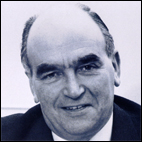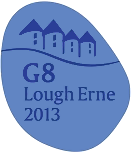Related Research Articles
Sinn Féin is an Irish republican and democratic socialist political party in both the Republic of Ireland and Northern Ireland.
The Social Democratic and Labour Party is a social-democratic and Irish nationalist political party in Northern Ireland. The SDLP currently has seven members in the Northern Ireland Assembly (MLAs) and two members of Parliament (MPs) in the House of Commons of the United Kingdom.

Northern Ireland is one of the four countries of the United Kingdom, situated in the north-east of the island of Ireland. It was created as a separate legal entity on 3 May 1921, under the Government of Ireland Act 1920. The new autonomous Northern Ireland was formed from six of the nine counties of Ulster: four counties with unionist majorities – Antrim, Armagh, Down, and Derry/Londonderry – and two counties with slight Irish nationalist majorities – Fermanagh and Tyrone – in the 1918 General Election. The remaining three Ulster counties with larger nationalist majorities were not included. In large part unionists, at least in the north-east, supported its creation while nationalists were opposed.

County Monaghan is a county in Ireland. It is in the province of Ulster and is part of Border strategic planning area of the Northern and Western Region. It is named after the town of Monaghan. Monaghan County Council is the local authority for the county. The population of the county was 65,288 according to the 2022 census.

Michelle Angela Gildernew is an Irish Sinn Féin politician from County Tyrone, Northern Ireland. She was the Member of Parliament (MP) for Fermanagh and South Tyrone from 2017 to 2024, after previously holding the seat from 2001 to 2015.

United Ireland, also referred to as Irish reunification or a New Ireland, is the proposition that all of the island of Ireland should be a single sovereign state. At present, the island is divided politically: the sovereign state of Ireland has jurisdiction over the majority of Ireland, while Northern Ireland, which lies entirely within the Irish province of Ulster, is part of the United Kingdom. Achieving a united Ireland is a central tenet of Irish nationalism and Republicanism, particularly of both mainstream and dissident republican political and paramilitary organisations. Unionists support Northern Ireland remaining part of the United Kingdom and oppose Irish unification.

Henry William West was a Northern Irish unionist politician who served as leader of the Ulster Unionist Party (UUP) from 1974 until 1979.

The Republic of Ireland–United Kingdom border, sometimes referred to as the Irish border or British–Irish border, runs for 499 km (310 mi) from Lough Foyle in the north-west of Ireland to Carlingford Lough in the north-east, separating the Republic of Ireland from Northern Ireland.

The Partition of Ireland was the process by which the Government of the United Kingdom of Great Britain and Ireland (UK) divided Ireland into two self-governing polities: Northern Ireland and Southern Ireland. It was enacted on 3 May 1921 under the Government of Ireland Act 1920. The Act intended both territories to remain within the United Kingdom and contained provisions for their eventual reunification. The smaller Northern Ireland was duly created with a devolved government and remained part of the UK. The larger Southern Ireland was not recognised by most of its citizens, who instead recognised the self-declared 32-county Irish Republic. On 6 December 1922, Ireland was partitioned. At that time, the territory of Southern Ireland left the UK and became the Irish Free State, now known as the Republic of Ireland.

Arlene Isobel Foster, Baroness Foster of Aghadrumsee,, is a British broadcaster and politician from Northern Ireland who served as First Minister of Northern Ireland from 2016 to 2017 and 2020 to 2021 and leader of the Democratic Unionist Party (DUP) from 2015 to 2021. Foster was the first woman to hold either position. She is a Member of the House of Lords, having previously been a Member of the Legislative Assembly (MLA) for Fermanagh and South Tyrone from 2003 to 2021.

Scouting in Northern Ireland is represented by three Scouting associations:
The Ulster Senior Football Championship is an inter-county and cross-border competition for Gaelic football teams in the Irish province of Ulster. It is organised by the Ulster Council of the Gaelic Athletic Association (GAA) and begins in April. The final is played in May but traditionally was usually played on the third Sunday in July.
Liam Seán Kelly was an Irish republican, who was elected both to the House of Commons of Northern Ireland (1953–1958) and as a member of the upper house of the Irish legislature Seanad Éireann (1954–1957). He was also a member of the Irish Republican Army (IRA) and after his expulsion from that organisation in 1951, founded the Republican splinter group Saor Uladh and its political wing Fianna Uladh.

The N54 is a national secondary road in the Republic of Ireland connecting the towns of Monaghan and Cavan, crossing the Republic of Ireland–United Kingdom border several times. It is in three sections, separated by two sections in Northern Ireland classified as parts of the A3.

On 13 December 1989 the Provisional Irish Republican Army (IRA) attacked a British Army permanent vehicle checkpoint complex manned by the King's Own Scottish Borderers (KOSB) near the Northern Ireland–Republic of Ireland border at Derryard townland, a few miles north of Rosslea, County Fermanagh. The IRA unit, firing from the back of an armoured dump truck, attacked the small base with heavy machine-guns, grenades, anti-tank rockets and a flamethrower. A nearby Army patrol arrived at the scene and a fierce firefight erupted. The IRA withdrew after leaving a van bomb inside the complex, but the device did not fully detonate. The assault on the outpost left two soldiers dead and two wounded.

On 11 February 1990, an active service unit of the Provisional IRA East Tyrone Brigade shot down a British Army Gazelle helicopter along the border between Northern Ireland and the Republic of Ireland. It took place between Augher in County Tyrone and Derrygorry in County Monaghan. The helicopter was hit several times by heavy machine-gun fire and crash-landed on an open field, injuring three members of its crew of four.

The 39th G8 summit was held on 17–18 June 2013, at the Lough Erne Resort, a five-star hotel and golf resort on the shore of Lough Erne in County Fermanagh, Northern Ireland. It was the sixth G8 summit to be held in the United Kingdom and the first to be held in Northern Ireland. The earlier G8 summits hosted by the United Kingdom were held in London, Birmingham (1998), and Gleneagles (2005).

The impact of Brexit on the Irish border and its adjacent polities involves changes in trade, customs, immigration checks, local economies, services, recognition of qualifications, medical cooperation, and other matters, now that it is the only land border between the United Kingdom and the European Union.
Events during the year 2019 in Ireland.

The Protocol on Ireland/Northern Ireland, commonly abbreviated to the Northern Ireland Protocol, is a protocol to the Brexit withdrawal agreement that sets out Northern Ireland’s post-Brexit relationship with both the EU and Great Britain. The Withdrawal Agreement, including the Protocol, came into effect on 1 January 2021. Citing the island of Ireland's "unique circumstances," the Protocol governs unique arrangements on the island between the United Kingdom and the European Union; it regulates some aspects of trade in goods between Northern Ireland and the rest of the United Kingdom.
References
- ↑ Concerned local anti-Brexit group formed
- ↑ "Border Communities Against Brexit awarded European Citizen's Prize". 20 March 2024.
- ↑ Brexit protesters set up mock checkpoint on border
- ↑ Protesters against Brexit gather in Cavan and Fermanagh
- ↑ Priest to lead Border communities’ protest over Brexit
- ↑ "Stormont protest over Brexit warns against hard border". rte.ie. 29 March 2017.
- ↑ "Members of Border Communities Against Brexit meet French ambassador to Ireland". Breaking News. 12 September 2019. Retrieved 1 July 2020.
- ↑ "Anti-Brexit activists stage protest at Irish border". belfasttelegraph. ISSN 0307-1235 . Retrieved 1 July 2020.